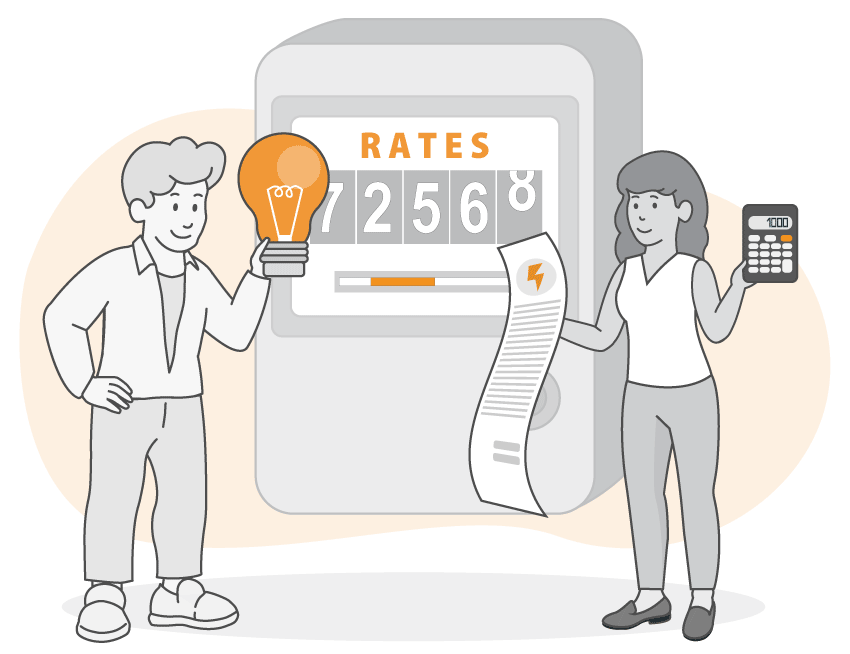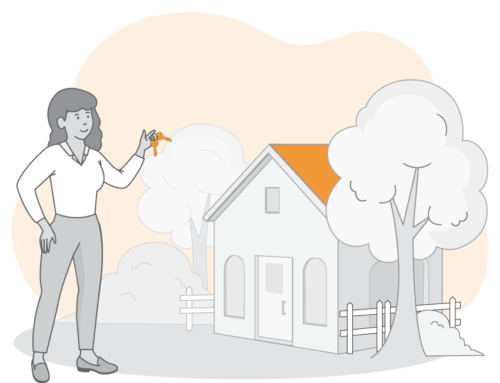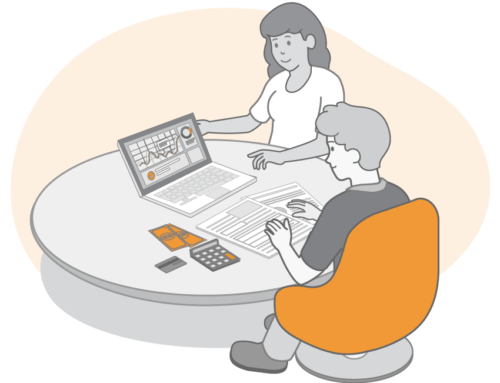Mortgage Rates and How They are Determined
Understanding the differences between a Fixed and Variable rate mortgage is vital in getting the right mortgage product for you. Each option has its pros and cons and careful consideration should be given to the product you choose. Below are the definitions and some general rules to have in mind when considering between the two.
Fixed Rate Mortgages: Are mortgages where the monthly interest and payment amount doesn’t change over the term period of the loan.
Variable Rate Mortgages: Are mortgages where the monthly interest rate and payment can change whenever there is a change to the Prime rate.
| Pro/Con | Fixed Rate mortgages | Variable Rate Mortgage |
|---|---|---|
| Pros | • Lock in an interest rate that never changes over the course of your mortgage. • Have peace of mind budgeting your bills knowing that your monthly payment will never change. |
• Pay less on your monthly mortgage payment. • If interest rates go down your portion of interest on your monthly payment will as well. |
| Cons | • If the prime rate goes down, you don’t get to benefit from the lower rate. • If you decide to sell your house you will have a greater penalty for breaking your mortgage. |
• If interest rates rise, your monthly payment of interest will increase as well. |
| Fixed Rate mortgages | |
|---|---|
| Pros | • Lock in an interest rate that never changes over the course of your mortgage. • Have peace of mind budgeting your bills knowing that your monthly payment will never change. |
| Cons | • If the prime rate goes down, you don’t get to benefit from the lower rate. • If you decide to sell your house you will have a greater penalty for breaking your mortgage. |
| Variable Rate Mortgage | |
| Pros | • Pay less on your monthly mortgage payment. • If interest rates go down your portion of interest on your monthly payment will as well. |
| Cons | • If interest rates rise, your monthly payment of interest will increase as well. |
So, which option is better? The answer is not straightforward because it depends on your financial situation and goals. Historical data shows that variable rate mortgages generally cost less than fixed rate mortgages, but this can vary depending on market conditions. For example, during the 2008 financial crisis, fixed rate mortgages were more cost-effective than variable rate mortgages.
Therefore, you’ll need to weigh the pros and cons of each option and consider your short-term and long-term financial goals before making a decision. Ultimately, the best option for you is the one that aligns with your financial objectives and offers you the most peace of mind.
Mortgage Rates and How They are Determined
Understanding the differences between a Fixed and Variable rate mortgage is vital in getting the right mortgage product for you. Each option has its pros and cons and careful consideration should be given to the product you choose. Below are the definitions and some general rules to have in mind when considering between the two.
Fixed Rate Mortgages: Are mortgages where the monthly interest and payment amount doesn’t change over the term period of the loan.
Variable Rate Mortgages: Are mortgages where the monthly interest rate and payment can change whenever there is a change to the Prime rate.
| Pro/Con | Fixed Rate mortgages | Variable Rate Mortgage |
|---|---|---|
| Pros | • Lock in an interest rate that never changes over the course of your mortgage. • Have peace of mind budgeting your bills knowing that your monthly payment will never change. |
• Pay less on your monthly mortgage payment. • If interest rates go down your portion of interest on your monthly payment will as well. |
| Cons | • If the prime rate goes down, you don’t get to benefit from the lower rate. • If you decide to sell your house you will have a greater penalty for breaking your mortgage. |
• If interest rates rise, your monthly payment of interest will increase as well. |
| Fixed Rate mortgages | |
|---|---|
| Pros | • Lock in an interest rate that never changes over the course of your mortgage. • Have peace of mind budgeting your bills knowing that your monthly payment will never change. |
| Cons | • If the prime rate goes down, you don’t get to benefit from the lower rate. • If you decide to sell your house you will have a greater penalty for breaking your mortgage. |
| Variable Rate Mortgage | |
| Pros | • Pay less on your monthly mortgage payment. • If interest rates go down your portion of interest on your monthly payment will as well. |
| Cons | • If interest rates rise, your monthly payment of interest will increase as well. |
So, which option is better? The answer is not straightforward because it depends on your financial situation and goals. Historical data shows that variable rate mortgages generally cost less than fixed rate mortgages, but this can vary depending on market conditions. For example, during the 2008 financial crisis, fixed rate mortgages were more cost-effective than variable rate mortgages.
Therefore, you’ll need to weigh the pros and cons of each option and consider your short-term and long-term financial goals before making a decision. Ultimately, the best option for you is the one that aligns with your financial objectives and offers you the most peace of mind.




